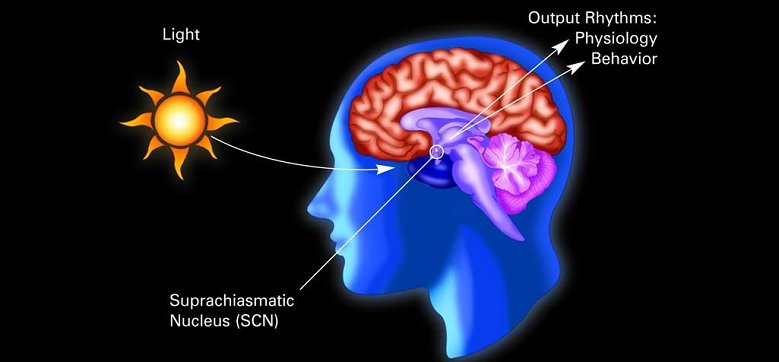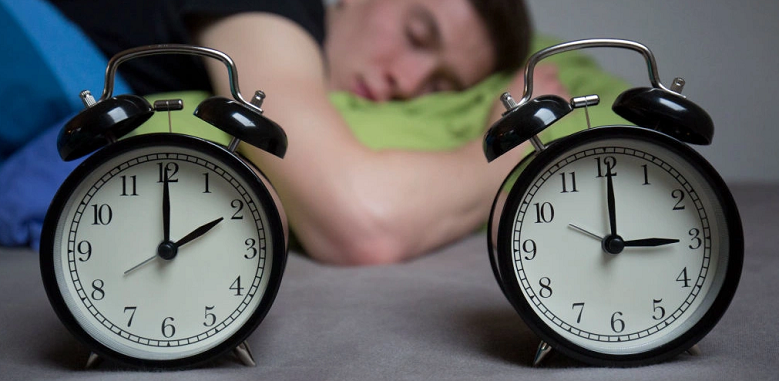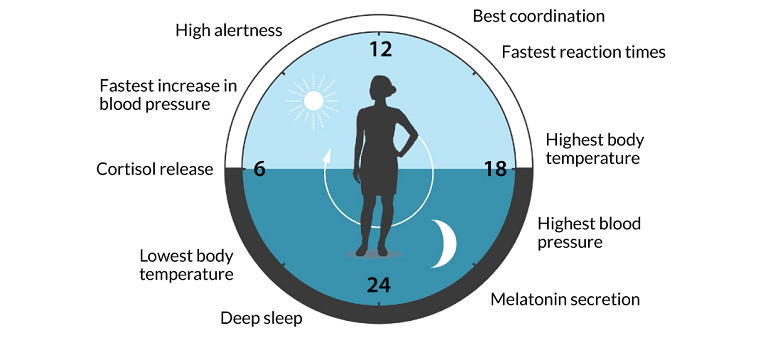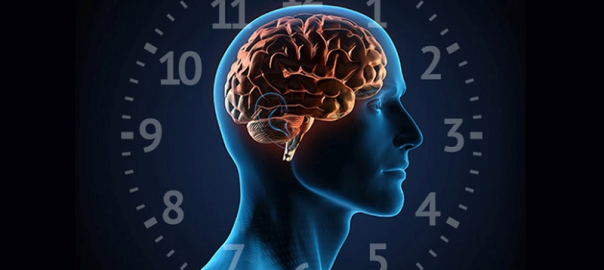The Rhythm of Sleep: Unraveling the Mystery of Your Biological Clock
We all know the feelings of a restless night, tossing and turning, seemingly at the mercy of our own bodies. But did you know that these sleep struggles might not be random, but tied to an internal timekeeper known as our biological clock?
Our biological clock, a complex system underpinning our circadian rhythms, is a vital part of understanding our sleep patterns and overall health. It orchestrates various physical functions, from hormone release to body temperature, and perhaps most importantly, our sleep-wake cycles.
Introduction
The rhythms of sleep and wakefulness that we all experience are more than just habits or lifestyle patterns; they’re intimately connected to an internal timekeeper known as our biological clock. But what exactly is this clock, and how does it influence our sleep?
Our biological clock, tied to the 24-hour day-night cycle, is a critical component of our health and wellbeing. It orchestrates a variety of bodily functions, such as hormone production, digestion, body temperature, and of course, our sleep-wake cycles. By regulating these physiological processes, it ensures that our bodies operate optimally.
But when our biological clock is disrupted, it can have far-reaching effects, not only affecting our sleep but also impacting our physical and mental health. Whether due to late-night work shifts, travel across time zones, or chronic sleep issues, a disturbed biological clock can lead to a host of problems, including insomnia, fatigue, mood disorders, and even chronic diseases like obesity and heart disease.
Understanding the Biological Clock
From regulating our metabolism to determining our sleep patterns, our biological clock plays a critical role in our daily life. It’s not a single entity but rather a complex system of biological rhythms that interact with each other and with the environment.
Explanation of Circadian Rhythms
Circadian rhythms are physical, mental, and behavioral changes that follow a daily cycle. They’re found in most living things, including animals, plants, and even tiny microbes. The study of these rhythms is known as chronobiology.
While circadian rhythms relate to various functions, including feeding patterns and hormone production, one of the most obvious circadian rhythms is the sleep-wake cycle. When functioning correctly, it prompts us to feel alert during the day and sleepy at night, aligning with the natural light-dark cycle of the earth [1].
The Suprachiasmatic Nucleus: The Body’s Master Clock
But where exactly is the headquarters of these circadian rhythms in our body? The answer lies in a tiny region of the brain known as the suprachiasmatic nucleus (SCN). Located in the hypothalamus, the SCN contains about 20,000 nerve cells and is considered the body’s ‘master clock.’
The SCN receives direct input from the eyes, specifically from specialized cells in the retina that detect light and dark. It uses this information to reset the biological clock every day, aligning our internal rhythms with the external environment.
Impact of Biological Clock on Body Functions
Our biological clock’s influence extends well beyond just sleep. It regulates various body functions, including:
- Body temperature: Our body temperature fluctuates throughout the day, typically lower during the night when we sleep, and peaking in the late afternoon or early evening.
- Hormone release: Hormones such as cortisol and melatonin are released in a circadian rhythm. Cortisol, a hormone associated with stress response, usually peaks in the early morning, helping us wake up. On the other hand, melatonin, known as the ‘sleep hormone,’ is released when it’s dark, preparing our bodies for sleep.
- Feeding patterns: Our eating habits, digestion, and metabolism are also influenced by our biological clock. That’s why we feel hungry around the same times each day.

Biological Clock and Sleep Regulation
Understanding the intimate relationship between the biological clock and sleep is crucial for our health and well-being. Disruptions in this relationship can result in poor sleep quality, chronic insomnia, or other sleep disorders.
Role of Biological Clock in Sleep-Wake Cycle
The sleep-wake cycle is one of the most prominent circadian rhythms influenced by our biological clock. This cycle oscillates between periods of sleepiness and alertness at regular intervals. Under normal conditions, the drive for sleep increases throughout the day, peaking in the late night.
The SCN, our body’s master clock, plays a critical role in this cycle. By receiving light cues from the environment, it helps align our internal sleep-wake cycle with the outside world’s day-night cycle. This is why we naturally feel awake when the sun is up and sleepy when it’s dark [2].
Melatonin and Sleep: A Key Link
The hormone melatonin is another key player in sleep regulation. Often referred to as the ‘sleep hormone,’ melatonin is produced by the pineal gland in the brain, its secretion influenced by light. As darkness falls, the SCN signals the pineal gland to produce more melatonin, which in turn promotes sleepiness. When the light of a new day arrives, melatonin production decreases, signaling the body to awaken.
Therefore, our levels of alertness and sleepiness are in large part determined by the levels of melatonin in our bodies.
Factors That Influence the Sleep-Wake Cycle
While our biological clock inherently follows a circadian rhythm, various factors can influence our sleep-wake cycle:
- Light: As previously mentioned, light is a crucial factor. Exposure to light, particularly blue light from electronic devices, can suppress melatonin production and interfere with our sleep.
- Age: Our sleep patterns change with age. For instance, teenagers often have a delayed sleep phase, making them naturally inclined to stay up late and wake up later in the morning.
- Lifestyle and work schedule: Shift work, irregular work hours, or a lifestyle that doesn’t align with the natural day-night cycle can disrupt our biological clock and sleep patterns.
- Stress and illness: High stress levels or certain illnesses can interfere with our sleep-wake cycle.
- Meditation: Relaxation techniques affect sleep quality. There are additional benefits, such as the fact that meditation improves skin health and complextion.

How External Factors Influence the Biological Clock
While our biological clock inherently follows the 24-hour day-night cycle, it is also significantly influenced by external factors, including light exposure, work schedules, use of electronic devices, and even our diet and exercise habits. By understanding these influences, we can take steps to ensure our biological clock stays in sync with our daily lives.
Effect of Light and Dark on Sleep
Light is one of the most powerful influencers of our biological clock. Our body’s master clock, the SCN, receives direct input from the eyes and uses this information to adjust our circadian rhythms to match the external day-night cycle.
Exposure to light during the day helps us feel awake and alert, while darkness signals that it’s time for sleep. But when we expose ourselves to bright light in the evening or fail to get enough natural light during the day, it can confuse our biological clock and disrupt our sleep-wake cycle [3].
Impact of Shift Work and Jet Lag
Shift work, especially night shifts or rotating shifts, can severely disrupt our biological clock. It forces us to be active when our body is programmed to sleep and vice versa. Over time, this can lead to chronic sleep deprivation and increase the risk of various health issues, including cardiovascular disease and diabetes.
Jet lag is another common disruptor of our biological clock. When we travel across multiple time zones, our internal clock becomes out of sync with the local time, resulting in symptoms such as daytime fatigue, difficulty sleeping, and gastrointestinal issues.
Influence of Electronic Devices on Sleep
Many of us have a habit of using electronic devices like smartphones, tablets, and laptops late into the night. These devices emit blue light, which can suppress melatonin production and trick our brains into thinking it’s still daytime. This can delay the onset of sleep and disrupt our sleep-wake cycle.
Role of Diet and Exercise
Our eating and exercise habits can also influence our biological clock. For example, eating large meals late at night can interfere with our sleep. On the other hand, regular physical activity can help regulate our circadian rhythms and improve sleep quality.

Strategies to Regulate Your Biological Clock for Better Sleep
Now that we understand the impact of external factors on our biological clock, we can take proactive steps to keep it in sync and improve our sleep quality. By following the strategies outlined below, you can promote a healthier sleep-wake cycle and reap the benefits of better rest.
Maintaining a Consistent Sleep Schedule
One of the best ways to regulate your biological clock is to establish and maintain a consistent sleep schedule. Going to bed and waking up at the same time every day (including weekends) can help your body get into a rhythm and make falling asleep and waking up easier. This also helps ensure that you get an adequate amount of sleep each night [4].
Prioritizing Light Exposure in the Morning
Getting exposure to natural light in the morning is crucial for resetting your biological clock each day. This light exposure helps signal to your body that it’s time to wake up and be alert. If possible, try to spend some time outside during the morning hours, or at least make sure your indoor environment is well-lit.
Limiting Exposure to Electronic Devices Before Bed
As mentioned earlier, the blue light emitted by electronic devices can interfere with melatonin production, delaying the onset of sleep. To minimize this effect, it’s a good idea to limit your use of electronic devices for at least an hour before bedtime. If this isn’t feasible, consider using blue light filtering apps or screen protectors to reduce the impact on your sleep.
Diet and Exercise Recommendations
Maintaining a healthy diet and engaging in regular physical activity can help keep your biological clock in check. Aim to eat a balanced diet, and avoid consuming large meals, caffeine, or alcohol close to bedtime, as these can disrupt your sleep. In addition, engaging in regular exercise (preferably in the morning or afternoon) can help regulate your circadian rhythms and improve sleep quality. However, avoid intense physical activity too close to bedtime, as this can have a stimulating effect.
Potential Benefits of Melatonin Supplements
For some people, taking melatonin supplements may be a helpful strategy to regulate their biological clock, especially for shift workers or those experiencing jet lag. Melatonin supplements can help signal to your body that it’s time for sleep, making it easier to fall asleep and stay asleep. However, it’s essential to consult with a healthcare professional before taking melatonin, as the appropriate dosage and timing can vary based on individual factors.
References
[1] Circadian Rhythms and Circadian Clock
[2] Circadian Rhythms
[3] Your Biological Clock: There’s a Right Time to Do Everything
[4] Genetics of the human circadian clock and sleep homeostat
